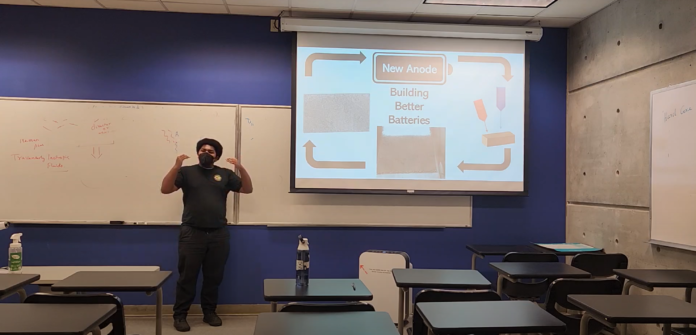When you think of robots, does your mind jump first to ABB Robotics and Mitsubishi Electric, or to R2-D2, HAL 9000, and WALL-E? If someone asked your opinion on the advancements in robotics and AI, do you think of OpenAI’s Figure or the dangers posed by the Terminator?
Public perception of new technology shapes and is shaped by mass media – especially science fiction. From Isaac Asimov’s I, Robot to Gene Roddenberry’s Star Trek, science fiction has played a major role in how the public builds mental frameworks to understand emerging technologies. In a 2008 Working Paper for the Social Contexts and Responses to Risk Network (SCARR) journal, researchers at Cardiff University discovered that participants frequently referenced Frankenstein, Gattaca, and Brave New World, among other science fiction sources, to explain and form perspectives on emerging technology (Hughes, Kitzinger, 2008). Phrases like “Frankenstein foods” and “nano Robocop threat” were cited as examples of science fiction influencing public perception of GMO crops and nanobots (Hughes, Kitzinger, 2008).
So how exactly does science fiction impact the public’s perspective?
HAL 9000, a “rogue” AI from Stanley Kubrick’s 2001: A Space Odyssey
Science Fiction as Cautionary Tale
One perspective, touted by scientists and policy makers alike, is that science fiction narratives serve as cautionary tales that teach audiences to mistrust science through imagery of unchecked curiosity, mad scientists, and unethical experimentation. In a 2003 study, researchers discovered that “individuals who frequently watch television are more likely than infrequent viewers to lack confidence in the scientific community” (Kirby, 2003). Clearly, fictional representations of science have eroded trust between the public and science.
In this perspective, science fiction serves the role of a cautionary tale. Stories like 2001: A Space Odyssey caution the audience at the dangers of artificial intelligence, amplifying existing fears of antagonistic AI software. Coupled with films like The Terminator and even pulp fiction like Avengers: Age of Ultron narratives of human-robot conflict and betrayal from artificial intelligence emerge. Through such fictional representations, scientific advancement is demonized and mistrusted.
Science Fiction as Inspiration
While the narrative of science fiction as a cautionary tale is held by many in both the scientific and policy communities, including even the National Science Foundation, it is not the only perspective (Hughes, Kitzinger, 2008 and Kirby, 2003). In fact, in the aforementioned working paper, only one research group “clearly confused fact and fiction in the way so often highlighted by scientists and policy makers” (Hughes, Kitzinger, 2008). Science fiction then, was not entirely negative – instead, science fiction served as entertainment, a reference point, and a source of inspiration when discussing scientific advancements.
This more positive perspective of science fiction is clearly visible in the researchers’ discussions with participants about nanotechnology. Participants “routinely identified” science fiction as a reference point when discussing nanotechnology, and for many, it was the only reference point they could find (Hughes, Kitzinger, 2008). Images of nanotechnology in science fiction were largely positive, “with a strong association with useful inventions and radical medical treatments”, leading to a positive image among the participants (Hughes, Kitzinger, 2008). Unexpectedly, of the topics the researchers discussed with participants, the one with the most science fiction references (nanotechnology) had the best image, while the one with the least references (GMO crops) had the most fears. For some, science fiction was even “treated with amusement” when discussing nanotechnology, rather than fearmongering (Hughes, Kitzinger, 2008).
As another scientist concluded, concerns about misuses of technology “are often combined with an extremely optimistic view of technical possibilities… grounded in an underlying positive discourse about progress” (Kirby, 2003). Science fiction, while introducing fears of misuse and unethical practice, ultimately proved to be an inspiration of scientific progress.
In Conclusion
As we now know, science fiction can hold both positive and negative implications for the public’s perception of technology. For some, science fiction is cautionary and mistrustful, playing on the public’s fears to sow distrust between the audience and the scientific community. For others, science fiction is an inspiration, providing the audience with a vision into the many possibilities at their fingertips.
Taken as a whole, science fiction is neither strictly positive nor strictly negative. Some technologies (like GMO crops) are feared regardless of science fiction representations, while other technologies (like nanobots) are viewed more positively due to the reference points posed by science fiction. Other technologies still (such as artificial intelligence) are feared in part due to science fiction, in which case science fiction plays a more negative role on public perception.
Science fiction is ultimately neither a blessing nor a curse. It is, like other forms of science media, to be examined individually, rather than generalized as a whole. So the next time you flip to the newest episode of Star Trek or The Expanse, consider the show’s perspective on science and form your own opinions.
Citations
Hughes, E., Kitzinger, J. (2008). Science Fiction Fears? Social Contexts and Responses to Risk Network (28). https://orca.cardiff.ac.uk/id/eprint/17529/1/HughesKitzingerWkPpr28.pdf
Kirby, David. (2003). Scientists on the Set: Science Consultants and the Communication of Science in Visual Fiction. Public Understanding of Science – PUBLIC UNDERST SCI. 12.261-278. 10.1177/0963662503123005.
Kubrick, Stanley. 1968. 2001: A Space Odyssey. Warner Bros.

